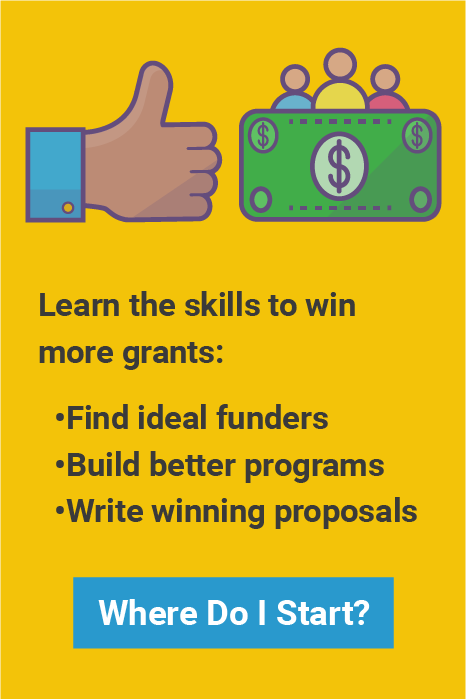
You’ve learned and confirmed that one of your grants is being discontinued, and you are unsure of the reasons. What next?
First, find out why. Was the termination due to policy changes or funding cuts by the funder? Were there performance or compliance issues on the part of your organization as the recipient? If there were compliance issues (such as missed deadlines, missing reports, or undesirable evaluation reports) you must address those issues thoroughly to prevent problems in the future.
Next, consider the current state of the program or services. Is the program still in early stages of operation or has it matured? Is it understood and supported by your community? If the program is mature, with valued services that are operating well, and the evaluation results demonstrate effectiveness, you may want to consider ways to keep the program in operation.
Could you reduce the level of services or the service components in order to reduce the budget? Do you have organizational reserves – a contingency fund – that can used to support operations until replacement funds can be secured?
Look at additional funding sources close to home. Foundations, private donors, and businesses may be willing to support the program. Explain how the program benefits the community. Develop partnerships that will support the program over time.
Finally, sometimes the only option is to end the program. Think carefully about the best way to do that in order to minimize negative effects on clients, staff, and community.
Revisit your strategic plan now, and on a regular basis, to ensure that sustainability is addressed for all programs. Are your funding strategies reasonable? How can you continually reinforce funding streams? Think about your communication strategies with elected officials at all levels, private funding sources, individual donors, and the community-at-large. What contingency plans do you have for unexpected grant terminations?
It is always important to learn from experience. The challenges you experience may prompt you to strengthen your accountability systems, your overall funding strategies, and your planning processes. Learn and forge ahead!
Patty Wolfe is an independent consultant to nonprofit organizations.



